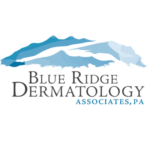Skin cancer is a serious concern, especially for those of us who live in the South, where sunshine and beautiful weather are prevalent. Although the best protection against the sun is to remain out of its reach, we understand that is not always practical. Besides, the summer months are meant to be spent at the pool, lake, beach, and out in the yard. However, it is important to keep yourself and your family members protected from the harmful rays of the sun when possible.
If you plan to be outdoors this summer, the sun cancer prevention educational tips below may go a long way in protecting your skin and preventing irreversible damage.
Tip 1: Apply sunscreen daily. Even if you don’t plan to be out in the direct sun, applying sunscreen daily is a great habit. We recommend using broad-spectrum sunscreen with an SPF of 15 or higher, especially in the months of March through October. Be sure to slather the sunscreen on the whole family, especially kids.
Tip 2: Avoid peak sun times. The sun is the hottest between 10:00 A.M. and 4:00 P.M., so if you plan to be out doing yard work or taking the kids for a swim, it is best to do so first thing in the morning or late afternoon. If you have to be out during these times, seek shade when possible, such as an umbrella at the pool and a hat and sunglasses to protect your face.
Tip 3: Say no to tanning. Although it may be tempting to lay in the sun catching rays or visit a tanning salon to darken your skin, tanning is off-limits when it comes to sun cancer prevention. Seek alternate methods of tanning, such as lotions and sprays.
Tip 4: Do not burn. This may be the most important tip of all. If you notice you are starting to burn, it is time to seek shelter from the sun. Burning your skin creates irreversible damage and can lead to an increased risk of skin cancer. Therefore, always be mindful when out in the sun. Reapply sunscreen frequently and opt for protective clothing.
Tip 5: Inspect your skin. Home skin exams are important. Each month, scan your body from head to toe and take note of anything that looks suspicious. Keep an eye out for new moles or spots, darkened areas, and scabs that won’t heal. Be sure to contact your dermatologist if you notice any areas of concern.
Skin cancer prevention starts at home. Following the best practices above may help keep your skin protected from dangerous rays. It is also recommended to visit your dermatologist yearly for a skin check. Early detection is key when it comes to skin cancer.
Learn More About Skin Cancer Prevention
If you need to schedule your yearly skin check, request an appointment with one of our dermatologists today. At Blue Ridge Dermatology, we are committed to providing our patients with sun cancer prevention education. So stop in and see us. We look forward to welcoming you into the Blue Ridge family.


